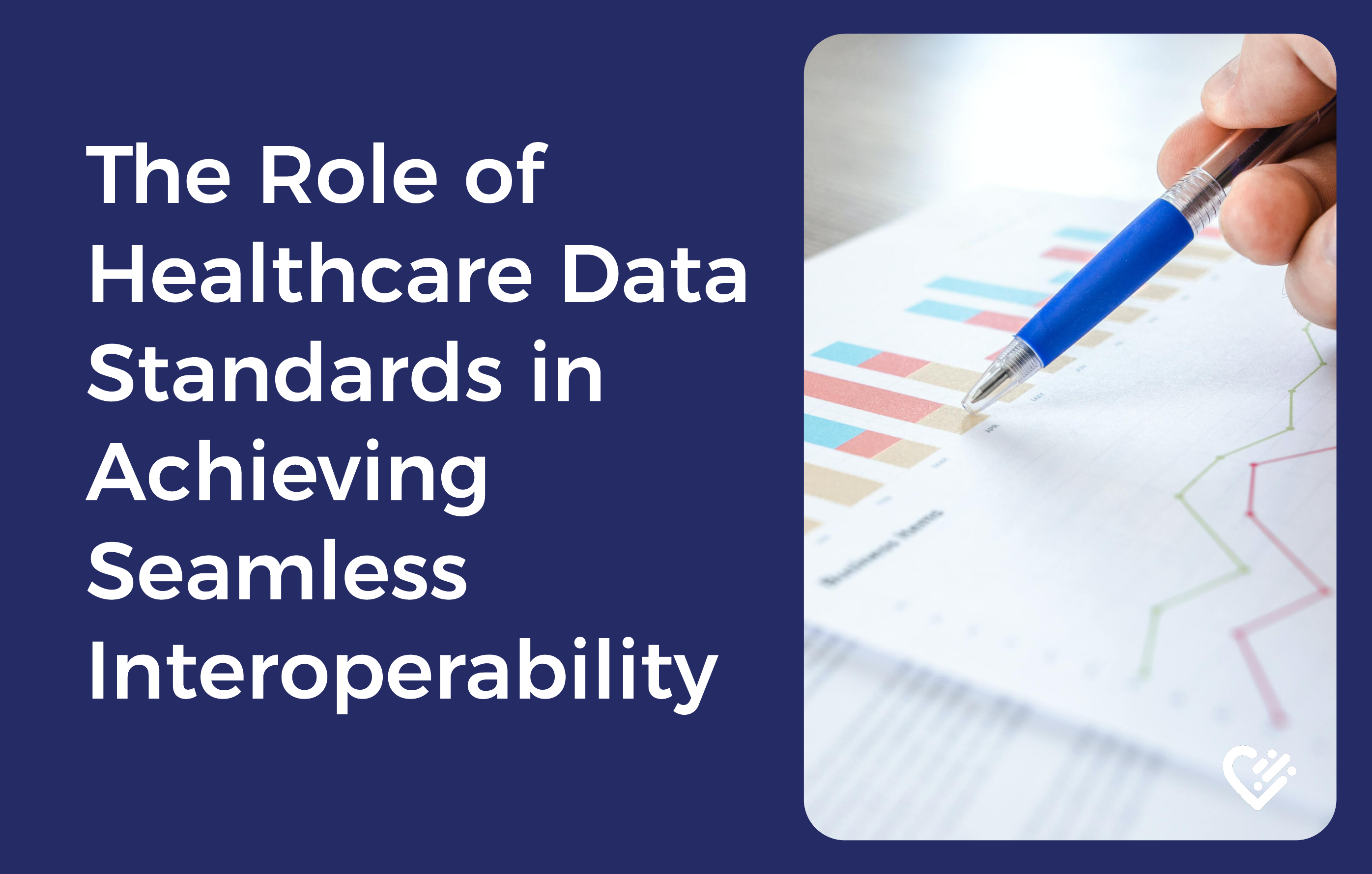Health data’s seamless exchange and interoperability are critical for delivering effective patient care in the rapidly evolving healthcare landscape. However, achieving this level of interoperability can be complex due to the diverse systems, applications, and stakeholders involved. Healthcare data standards are pivotal in addressing this challenge by providing a common framework that enables accurate, efficient, and secure data exchange across disparate systems. This article explores the crucial role of healthcare data standards in achieving seamless interoperability and the benefits they bring to the healthcare ecosystem.
Understanding Healthcare Data Standards
Healthcare data standards refer to guidelines, formats, and terminologies that establish consistency and uniformity in how health data is captured, stored, transmitted, and interpreted. These standards ensure that data from different sources can be understood, shared, and utilized effectively, regardless of the underlying systems or technologies.
The Importance of Interoperability
Healthcare Interoperability is the ability of different healthcare systems, applications, and devices to exchange and use data seamlessly. It facilitates the secure and timely flow of patient information among healthcare providers, enabling comprehensive care coordination, accurate diagnoses, and informed decision-making. Interoperability enhances patient safety, reduces redundant tests, improves efficiency, and promotes patient engagement.
The Role of Healthcare Data Standards
Healthcare data standards are crucial in achieving seamless interoperability by providing a common language and structure for data exchange. Here’s how they contribute to the interoperability landscape:
- Data Consistency and Structure: Standards ensure consistent data formatting, encoding, and organization, enabling different systems to interpret and process data uniformly. This consistency eliminates ambiguity and enhances data integrity.
- Semantic Interoperability: Healthcare data standards define standardized terminologies and codes, enabling accurate interpretation and exchange of clinical information. This semantic interoperability ensures that data is understood consistently across various healthcare settings.
- Information Exchange: By adhering to data standards, healthcare organizations can exchange patient data seamlessly. Standardized data formats enable information to be shared efficiently and accurately, eliminating the need for manual data entry and reducing errors.
- Integration and Interoperable Systems: Healthcare data standards facilitate the integration of disparate systems, such as electronic health records (EHRs), laboratory systems, and radiology systems. Interoperable systems can communicate effectively, ensuring the timely availability of accurate patient information.
Benefits of Healthcare Data Standards
The adoption and implementation of healthcare data standards bring several benefits to the healthcare ecosystem:
- Enhanced Care Coordination: Standardized data exchange enables healthcare providers to access comprehensive patient information, facilitating seamless care coordination and reducing treatment gaps.
- Improved Clinical Decision-Making: Consistent and accurate data exchange promotes informed clinical decision-making by providing clinicians with a holistic view of the patient’s medical history, diagnoses, and treatments.
- Reduced Costs and Efficiencies: Healthcare data standards streamline administrative processes, minimize redundant data entry, and improve workflow efficiencies, resulting in cost savings and increased operational productivity.
- Interoperability Beyond Organizational Boundaries: Adherence to healthcare data standards supports interoperability within a single healthcare organization and across different institutions and systems. This enables effective information sharing during care transitions and across regional or national health information exchange networks.
Healthcare data standards are pivotal in achieving seamless interoperability, which is essential for transforming the healthcare industry. By providing a common language and structure for data exchange, these standards ensure consistency, accuracy, and efficiency in sharing patient information across diverse systems. Adopting and implementing healthcare data standards brings numerous benefits, including enhanced care coordination, improved clinical decision-making, cost savings, and interoperability beyond organizational boundaries. Embracing these standards is crucial for creating a connected healthcare ecosystem that empowers providers, improves patient outcomes, and fosters innovation. By prioritizing healthcare data standards, we can unlock the full potential of interoperability and drive positive transformation in delivering high-quality, patient-centric care.
